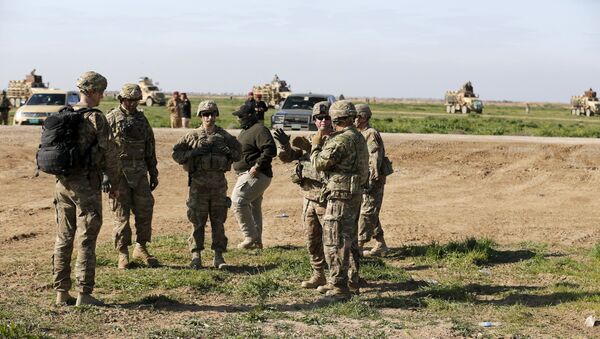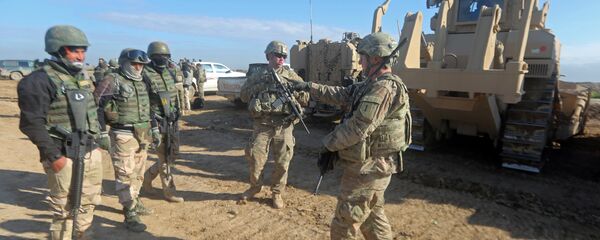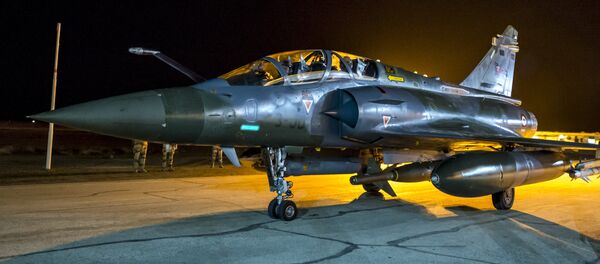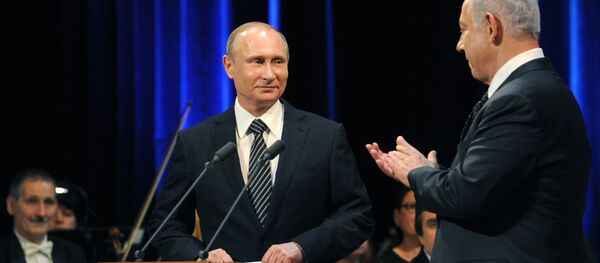While American hawks are urging Barack Obama to beef up the US military presence in the Middle East, voices have begun to emerge in the US calling for Washington's partial disengagement from the region.
Scholars and pundits alike express doubts that Washington's deeper involvement in Middle Eastern affairs will bear any fruit.
In his April article for Politico Magazine, Andrew J. Bacevich, Professor of International Relations and History at Boston University, called attention to the fact that Washington has largely failed to shape "the new world order" in the Middle East.
Instead of mitigating risks, US military activism has only created new threats in the region, he remarked, suggesting that it is time to exit the Middle Eastern quagmire.
Mohammed Ayoob of Michigan State University echoed Bacevich's stance in his June opinion piece for The National Interest.
Commenting on the Orlando and San Bernardino shootings, the academic questioned what lies at the root of the "hatred" demonstrated by "some radicalized inhabitants of broader Middle Eastern origin" toward American civilians.
"The answer lies in the history and extent of American involvement in the broader Middle East ranging from Turkey to Pakistan, what has been called the 'arc of crisis.' The United States was often involved on the wrong side of the internal and regional conflicts in this region, supporting authoritarian regimes to maintain control over restive populations," Ayoob believes.
Ayoob stresses that most of these reasons are now passé and thus far "it is time for the United States to begin disengaging from the broader Middle East."
The Orlando and San Bernardino events "have made clear even more than 9/11 that the greater the American involvement in the affairs of the broader Middle East, the greater chance of blowback that could inflict great damage on the security of its people at home," he warns.
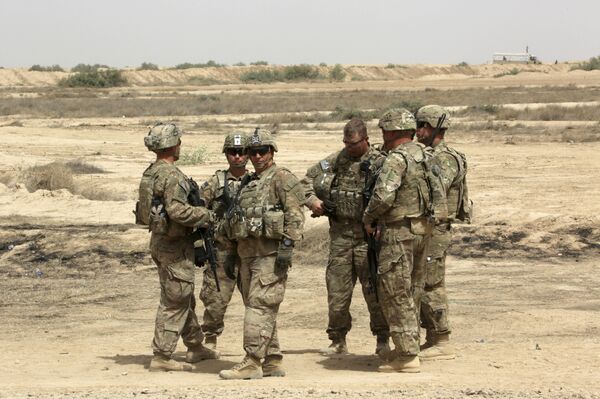
Richard Sokolsky of the Carnegie Endowment for International Peace and Jeremy Shapiro of the European Council on Foreign Relations also believe that the US should partially disengage from the Middle East, advocating a "minimum essential US engagement" strategy.
Sokolsky and Shapiro argue that Washington's core Middle Eastern interests are "already secure."
"What Constitutes America's core interests in the Middle East, and are they currently at risk?.. In his September 2013 speech to the UN General Assembly, President Obama described them as: confronting external aggression against US allies and partners; maintaining a free flow of energy; dismantling terrorist networks that threaten the American people; and preventing the development or use of weapons of mass destruction," the article in the National Interest reads.
Therefore, "a large peacetime US military presence in the Gulf, on land or at sea, is neither necessary nor helpful," they stress.
As for "maintaining a free flow of energy" from the Persian Gulf, a motive that has prompted the US to expand its military presence in the region since the 1970s and especially since the 1990s, the professors explain that the situation has changed drastically since then. The crux of the matter is that America has recently become an independent oil producer. So far, "while protecting the free flow of Persian Gulf oil is still necessary, significant [American] onshore military resources are not needed to do so."
The third core issue that motivates the use of US military force in the Middle East is the threat of terrorism. However, "US military forces in the region are neither necessary nor even useful for avoiding terrorist attacks on the US homeland. It is no longer 2001. The United States has become extremely effective at preventing terrorist attacks that emanate from abroad," Sokolsky and Shapiro emphasize.
"Core US interests in the Middle East are well protected and could remain so with even fewer US military forces stationed in the region. Additional applications of military might are not required or even useful for protecting these interests," Sokolsky and Shapiro conclude.
The question remains open what strategy toward Middle Eastern affairs will be adopted by Barack Obama's successor. Still, both Donald Trump and Hillary Clinton have proposed "increasing US military activity in the Middle East," the professors remark.
